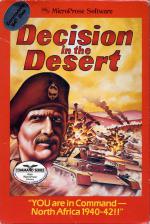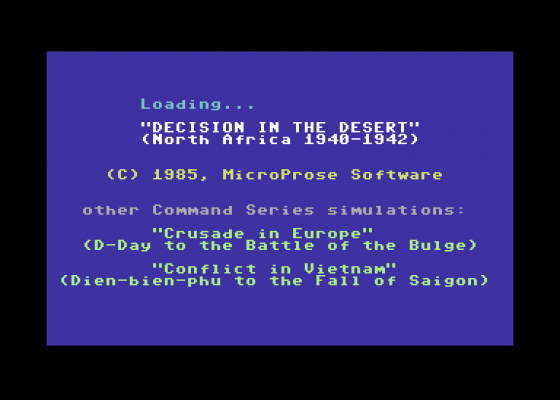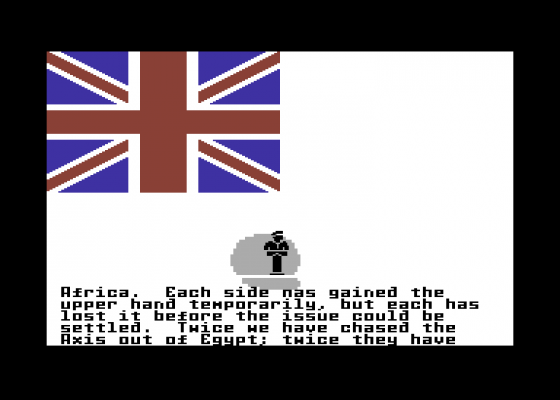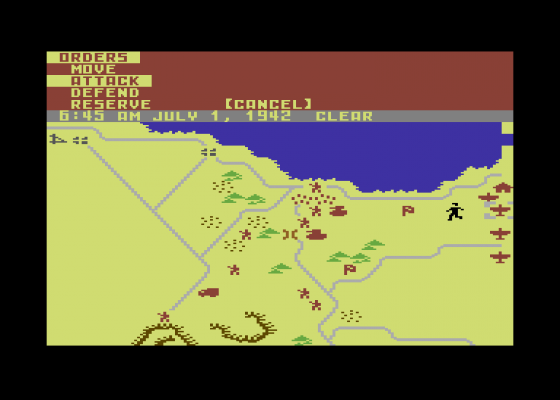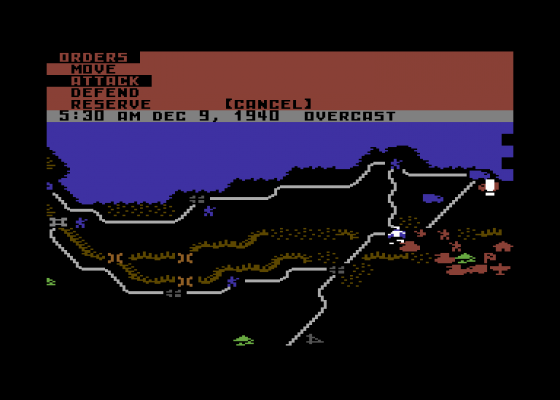
Zzap
 1st December 1985
1st December 1985
Categories: Review: Software
Publisher: Microprose
Machine: Commodore 64
Published in Zzap #8
Decision In The Desert
The second of the Command Series by Microprose arrived on my desk this month. After playing Crusade In Europe for several long hours, last month, this provided a way of spending even more time playing at the keyboard. The format of the game is fairly similar to that of the first in the series, but for those of you who missed (or just didn't read) that review, I'll briefly summarise the details again.
The game comes packaged as a single disk, complete with glossy, thick instruction booklet. The game attempts to cover five of the most important battles from the African campaign. These selectable scenarios are Sidi Barrani, Operation Crusader, Gazala, First Alamein and Alam Halfa.
The manual must be read (as is the norm with wargames of this depth) and Microprose have kept its presentation up to the high standards they set in Crusade In Europe. The first sections of the manual are fairly similar in style to those you would find in a conventional wargame, including details of components, game options, followed by a description of the play sequence. Of course, loading instructions are present too.

When you come to load the game, it is immediately obvious that good presentation doesn't end with the box and manual. Apart from all the options available being clearly displayed on the screen, there is a rather amusing 'general' who briefs you on the game from behind a podium, lit by spotlight You also find frequent references to 'day codes', which are listed throughout the manual. They provide a simple, yet effective method of program protection. Of course the manual could be copied, but there's a lot of it!
One of the most interesting features of the Command Series games is the absence of strict game turns. It is possible to freeze the game at any time, but otherwise the computer processes the condition and progress of each unit every four game hours. This means that whilst in play, you have to concentrate totally on the game. This results in several distinct advantages, not least of which is demanding play. Two player games also become very easy to set up differently. Just how fast the game progresses may be varied by the player. Obviously, beginners can choose a relatively slow rate of play, making the game more appealing to the uninitiated. There are also options to bias play to varying degrees. A slight aside here. In last month's review, I mentioned that this didn't really work too well, the form of artificial intelligence being apparently deficient. As this game uses many of the same routines as its predecessor, I expected it to be similarly disappointing this time. Could it be that my Crusade disk was somehow faulty, or have the routines been played with before their implementation in Decision? Whatever the cause, there is definitely a better feel to play in this one. It still isn't perfect, but without more frequent (and annoying) disk access, there would seem to be little room for improvement in this area.
Once play has begun, you are presented with a scrolling map showing detailed terrain features, with all the units scattered about (starting disposition of forces depends on variants chosen for each scenario). Note that there is a variable-limited intelligence option available.
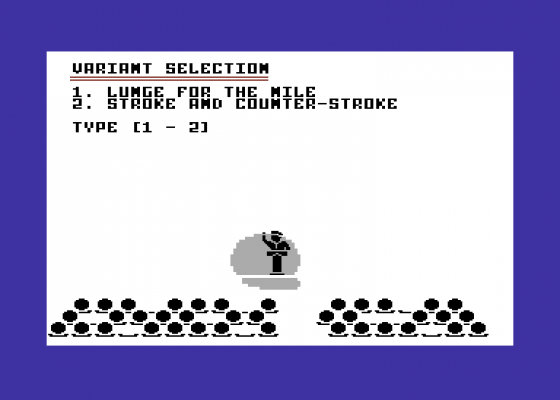
Units may be displayed as either icons or symbols. Symbols are nearer to the standard markings used in wargaming, whereas icons are more explanatory in nature. The manual provides details of both, and the display type may be changed at any point during play. Scale is usually on the divisional level but, because of the nature of the African campaign, many smaller ad hoc units are also displayed. The units are colour-coded to differentiate between German, British and Italian.
The game has very friendly input, with unit selection via a joystick, two types of commands (action and objective), flashback features, unit and game status modes. Anyone who has played Crusade should find Decision in the Desert very easy to learn. There are few features anyone will find confusing, and play will be faster and more rewarding as a result.
The victory conditions for the scenarios are balanced well for both sides. The historical notes provide interesting reading before play. It really is impressive how good strategies can pay off, assuming of course that your opponent hasn't read the notes either. Because of the variety of options, it's easy to set yourself a real challenge. One of the variants on the Gazala scenario is mind numbingly difficult if you chose the Axis forces.

Doubtless, the Command Series is growing on me with increased familiarity, and I do find desert warfare particularly fascinating, but even so, this game is an improvement over Crusade in Europe. It comes down to the simple fact that Decision in the Desert plays better. It's more of a free flowing game, as desert warfare should be. There is still more challenge to be had from SSI games (sorry, but comparison is inevitable). However, the Microprose titles are cheaper and just as well presented. If their quality continues to rise, we are all in for a treat.
Verdict
Presentation 70%
Very good, but there could still be some improvement.
Graphics 55%
Not bad background but some of the icons and symbols would benefit from improved presentation.
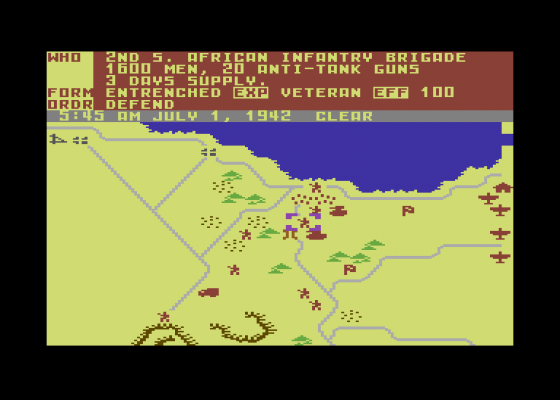
Instructions 75%
Better explained than in Crusade, allowing easier access to game features.
Authenticity 75%
Very good portrayal of the campaign.
Playability 68%
Fairly straightforward game system but the lack of game turns, whilst being an interesting idea, can lead to some problems initially.
Value For Money 60%
It really is very good value but ideally, wargames need not be so expensive.
Overall 79%
Perhaps the game system is more suited to desert warfare because the whole thing is a superior implementation to the first title in the series. Can't wait for the third.
Other Reviews Of Decision In The Desert For The Commodore 64
Decision In The Desert/Crusade In Europe (Microprose)
A review
Decision In The Desert (Microprose)
A review
Decision In The Desert (MicroProse/US Gold)
A review by Jon Sutherland (Commodore User)

